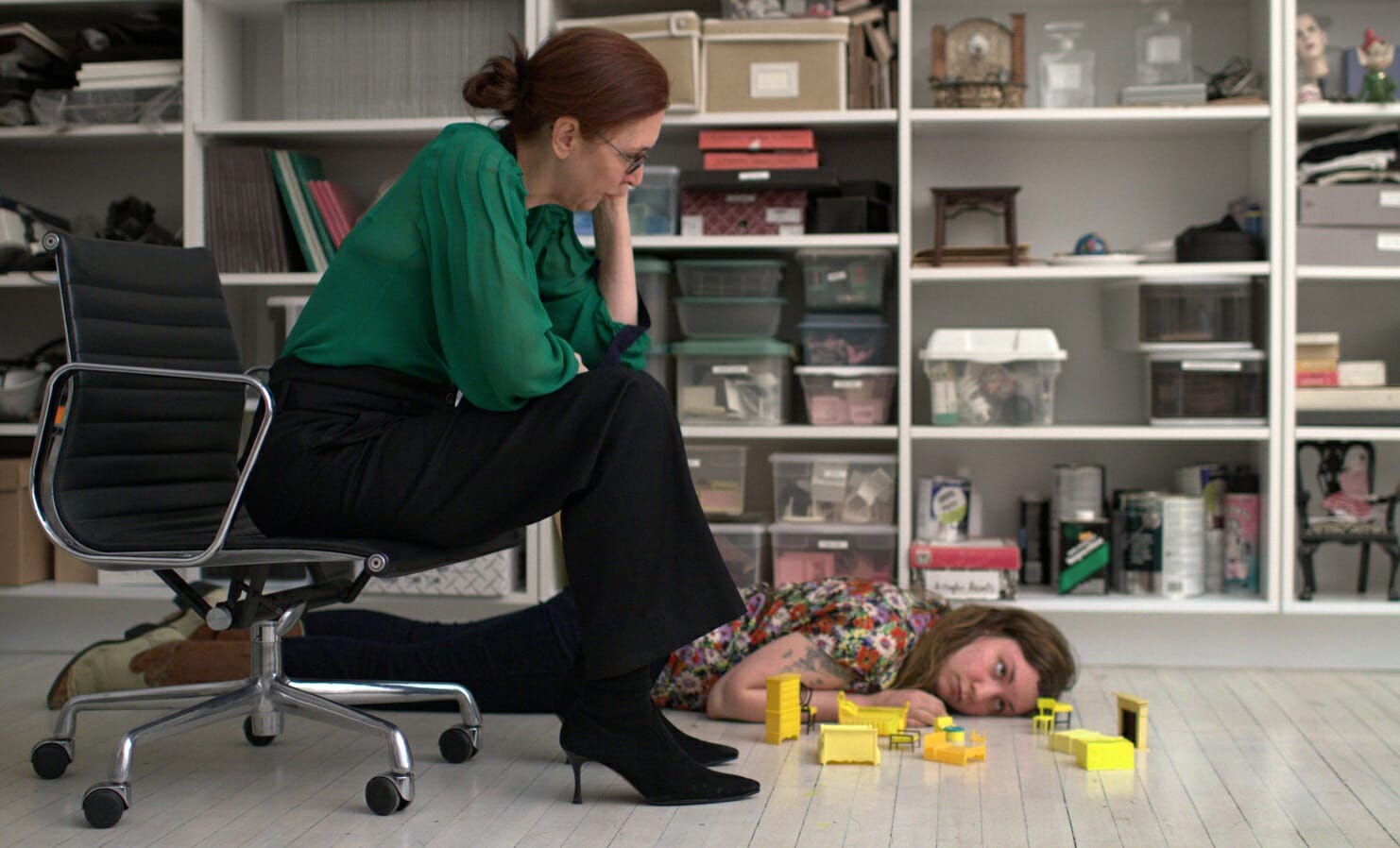And indeed, there is much to love about his film. Dunham and cinematographer Jody Lee Lipes compose compelling tableaus on the screen, especially those framed by the stark, almost oppressively minimalist white backgrounds in the loft. The writing is sharp and often funny, and some of Dunham’s actors are especially winning. Her sister Grace (who plays Nadine) has a goofy charm and unselfconsciousness that play well in indie world. Alex Karpovsky, as the freeloading YouTube sensation Jed, has a wonderful stillness to his persona, and he’s willing to let words hang in the air around the characters (a quality in short supply with either actors or directors these days). And Jemima Kirke steals the show as Charlotte, the Rayanne Graf to Jena’s Angela Chase. We’ll certainly be hearing from her again, most immediately as one of the co-stars of the HBO pilot that Dunham is producing with Judd Apatow.
The film’s main shortcomings, though, are difficult to get over. First, as is the case with many young writer/director/actors with great creative control, the overall arc of the story is disjointed. It drags in the second half, just when Dunham’s gotten us truly invested in the characters, and the tonal shifts are frustrating and confusing and don’t work. And Dunham herself turns in a very uneven performance. She’s capable of a rumpled charisma onscreen, and can be fascinating to watch. But she also seems to have an occasional tin ear for the timing of her lines, and with no other director to correct her, the character suffers. Directing oneself while acting one’s own writing is a very sticky wicket indeed, and Tiny Furniture might have been a much better film if Dunham had taken one of those roles off her plate.
